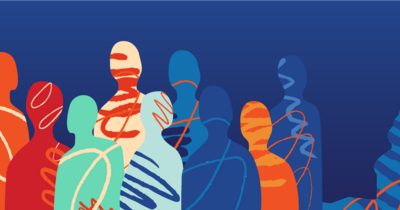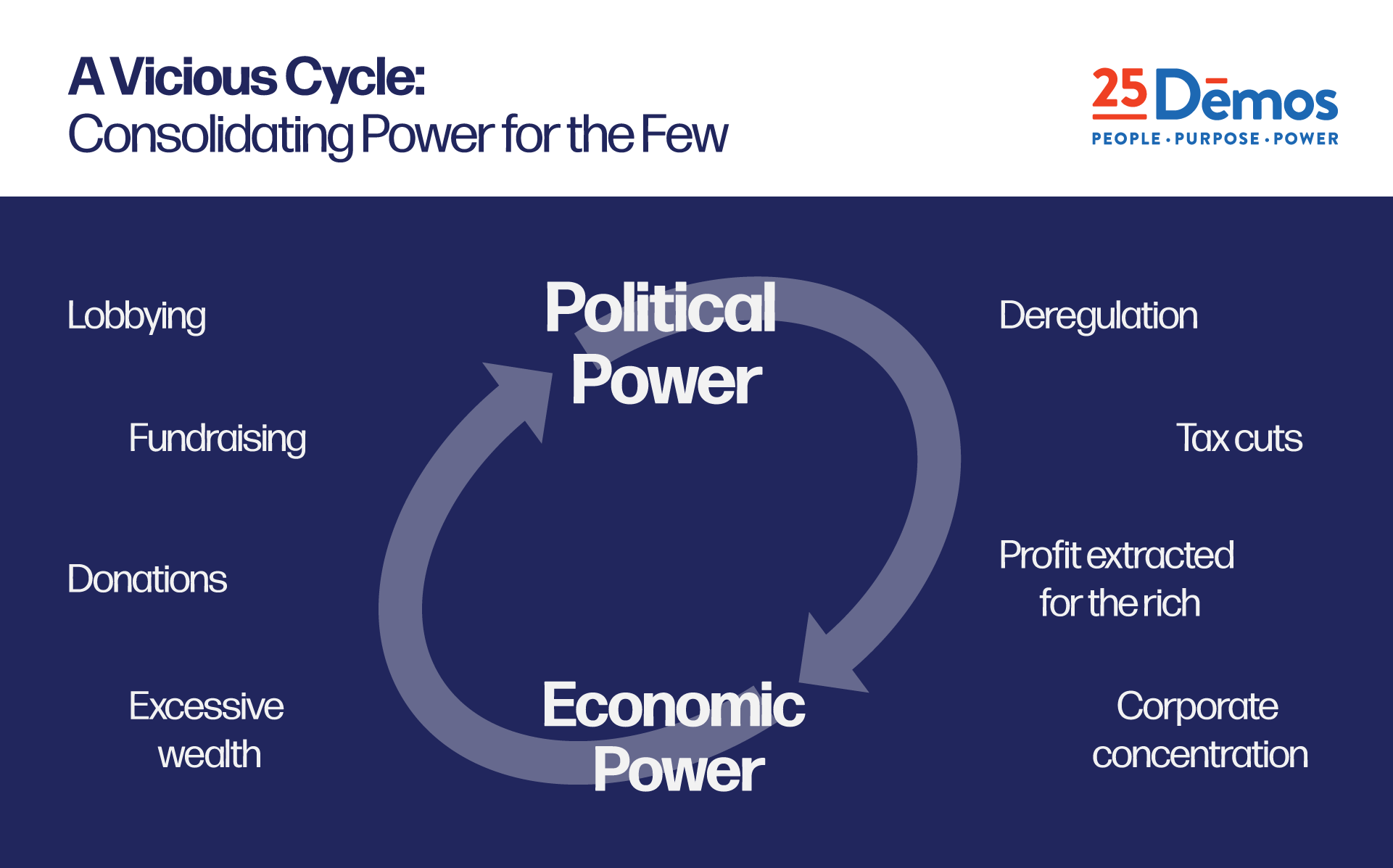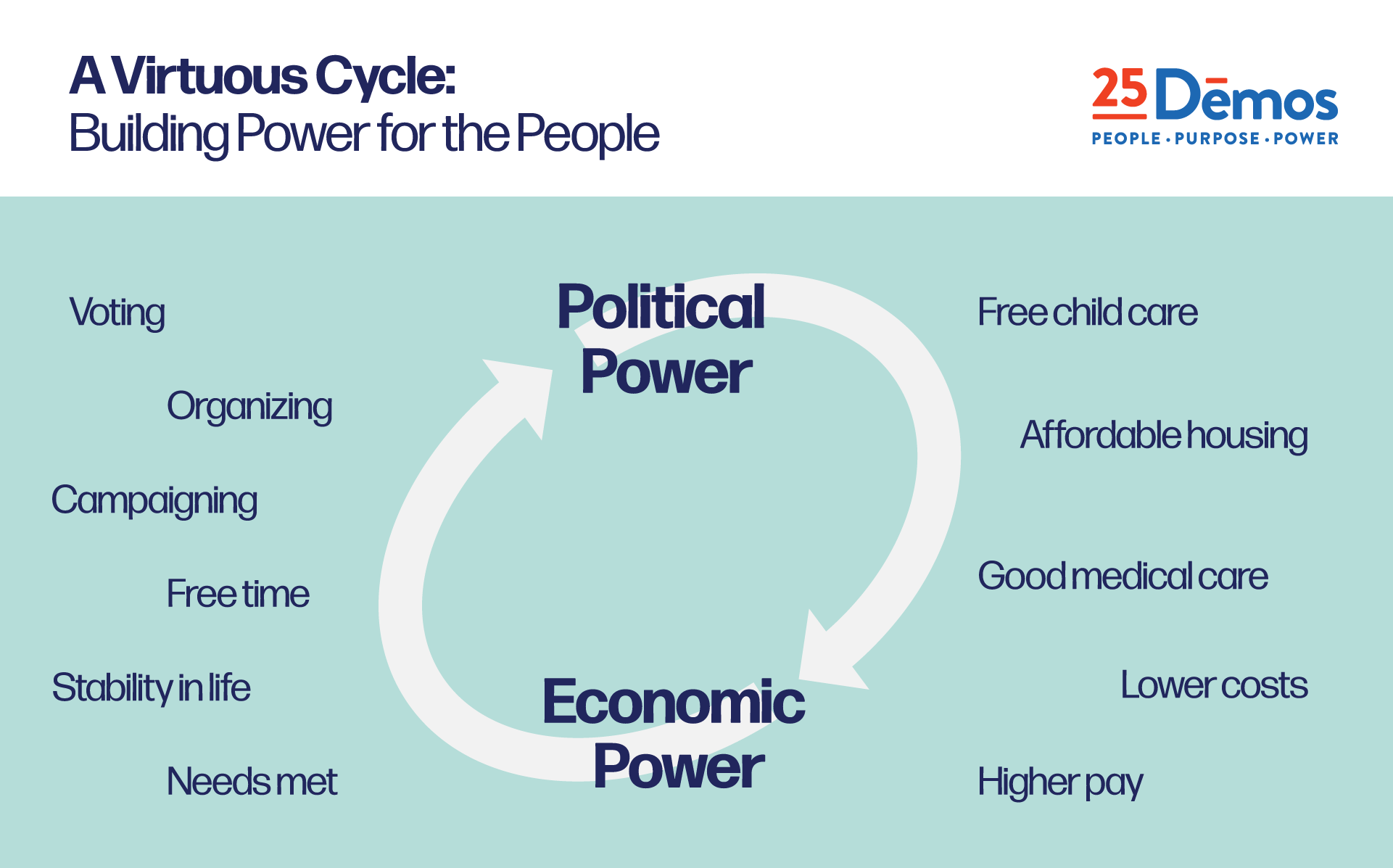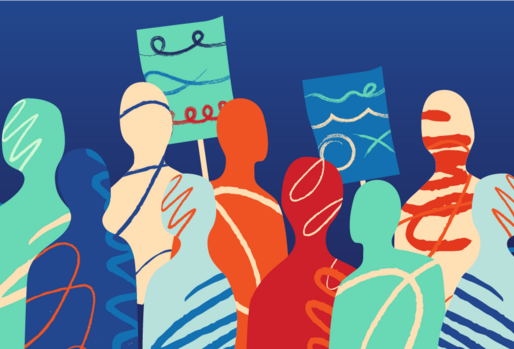
Economic and Political Power: Making the Cycle Virtuous, Not Vicious
For too long, the wealthy and powerful have used the cycle of economic and political power to enrich themselves and entrench their control. In this piece, Dēmos president Taifa Smith Butler envisions a more virtuous cycle of power.

Friends, it’s time to name our political reality for what it is. Authoritarianism has come to the United States. The penning of a simple opinion piece results in arrest; important judicial orders are flouted by the executive branch; actions as trivial as throwing a sandwich garner felony charges; the false spectre of Black crime is used to exert military control over cities; the independence of the central bank is compromised; the commissioner of labor statistics is summarily dismissed for telling the truth; government pushes independent media outlets to change their coverage of the current reality; the President orders the manipulation of electoral maps to consolidate his power; the country’s leadership describes a concerted effort to silence political opponents and the list goes on. These actions are disorienting and chaotic, but we who believe in justice must stay focused.
Economic and political power operate in tandem and so they must be built in tandem.
What to focus on? We need to keep our eyes trained on how we got to this point, and how we overcome it. For that, there’s no better place to start than the cyclical relationship between economic and political power. At Dēmos we focus on two substantive areas of work that are treated separately by most of the progressive community: Inclusive Democracy and Economic Justice. It's no coincidence that when we work to build power in these two areas separately, we often struggle to sustain our progress: Economic and political power operate in tandem and so they must be built in tandem.
Those who hope to concentrate power in the hands of the few have known this for decades. In our country, people who have political power also have economic power and vice versa. These powerful individuals both influence our government’s decisions and benefit from them materially. We see this play out in stark relief in today’s oligarchic configuration, but it’s nothing new. It’s standard practice that the wealthy use their dollars to influence political outcomes. From tax cuts for the wealthy to the legalization of anti-competitive business practices, these policy levers extract more profit for the rich, who reinvest those profits to buy more political influence, which they then use for their own material benefit, and the cycle continues.
This vicious cycle is not an accident. A coalition of corporations, wealthy elite individuals, and white supremacists have worked together across the long arc of U.S. history to shape a system that rests on a foundation of exploitation. Resources are extracted from laborers, from consumers, from Black and brown communities and redistributed to corporations and already-wealthy people, who use those resources to consolidate their political power by financing political campaigns, developing policy agendas, funding advocacy organizations, and currying favor with elected officials.
Today’s authoritarian reality is an outgrowth of that longstanding project. Over the last half century, voting has become less fair, economic resources have been less equally divided, and the coalition of White supremacists and the wealthy has consolidated power. Today, it seems that this oligarchy has no intention of stopping their drive to amass more resources, more power, no matter the casualty count. But the game isn’t over.
In this disorienting moment, we must pause and ask ourselves, “what if the cycle weren’t vicious? What if it were virtuous?”
In this disorienting moment, we must pause and ask ourselves, “what if the cycle weren’t vicious? What if it were virtuous?” We can diffuse the outsized influence of the billionaire donor class by using the relationship between political and economic power to enhance the power of the people. While those in power now are driving toward minority rule, there is an alternate path in front of us.
The new American majority is hurting. Prices are high, basic needs are unaffordable, and no one is listening. Just as the wealthy have taken advantage of the relationship between economic and political power, everyday people in the United States have been harmed by it. With money hard to come by, time and thought and energy is focused on scraping by even as new policies erect more barriers to the ballot and continue to extract resources from Black and brown communities. And those that do get ahead face limited access to capital and are too much the exception to the rule.
But by recognizing this downward spiral we can stop it in its tracks. If believers in power for everyday people offer bold, progressive policy solutions that quickly and concretely improve material conditions—free child care, affordable housing, higher pay—then bandwidth and energy increases. The new American majority can engage politically, demanding and claiming more political power that can then be used to further improve the material conditions of working people and the Black and brown communities in which they are disproportionately represented. And then the virtuous cycle continues.
By intervening to make the cycle virtuous, we can take power back from authoritarians and White supremacists.
This is about shifting power, not sharing it. By intervening to make the cycle virtuous, we can take power back from authoritarians and White supremacists. We can change who has representation in the halls of power. Here at Demos, we’ve documented that happening on a small scale, from increased worker power for bus drivers in Los Angeles to co-governance work in Pittsburgh that stopped corporate interests from controlling the city’s water. It’s time to intervene in this cycle on a broader scale.
This is a scary moment, but people are fighting back and winning. They are marching in the street, they are supporting their neighbors, they are speaking loudly. By keeping the virtuous cycle between economic and political power in mind as we work to wrest power back for the people, we can make our work stronger and more durable.




